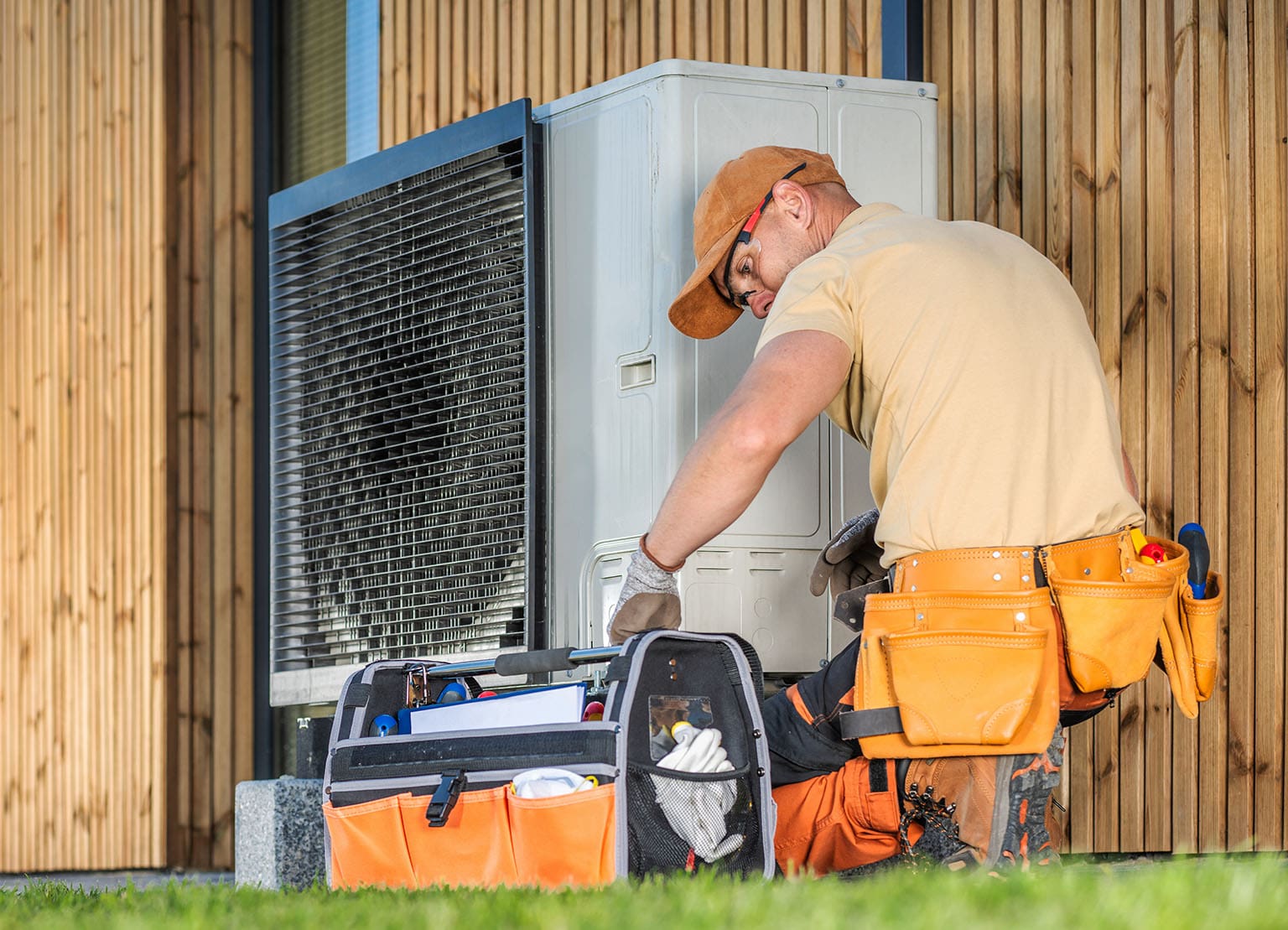When your HVAC or air conditioning system breaks down—especially during a heatwave or cold snap—it’s not just an inconvenience. It can quickly become an expensive emergency. So, the question many homeowner’s ask is: Will my homeowner’s insurance cover it?
With homeowner’s insurance, HVAC and air conditioning coverage all depend on how the damage occurred, what kind of systems you have, and the specifics of your policy. Let’s break it down.
Why HVAC Systems Matter and Why They’re So Expensive
HVAC systems do more than regulate temperature. They protect your home from excess moisture, help maintain air quality and keep you and your family comfortable year-round. Installation can cost $5,000 to $15,000 or more—making HVAC systems one of your home’s biggest investments.
Yet despite their cost, HVAC systems aren’t always fully covered by insurance, a fact many homeowners don’t realize until it’s too late.
What Homeowner’s Insurance Covers
Homeowner’s insurance is designed to cover damage caused by sudden and accidental events, which your policy refers to as covered perils. These usually include natural disasters, theft, and certain kinds of damage from fire or weather events.
Here are some examples of when your insurance may step in:
- Lightning strikes – If a lightning storm causes a power surge that damages your HVAC system’s electrical components, your insurance will likely cover the repair or replacement.
- Falling trees or debris – A tree limb crashing onto your outdoor AC unit during a storm would typically fall under your policy’s dwelling coverage.
- Fire and smoke damage – Whether it starts inside your home or nearby, fire that damages your HVAC system is generally covered.
- Wind or hail damage – If high winds or hailstones damage the exterior unit, insurers usually treat that as a covered loss.
- Theft or vandalism – Outdoor compressors and condensers are occasionally targeted by thieves or vandals, especially in vacant homes or remote locations. These incidents are typically covered under standard policies.
The key here is the cause of the damage. If it’s due to a covered peril listed in your policy, you’re probably protected but always check to be sure.
What Homeowner’s Insurance Won’t Cover
Just as important as what’s covered is what’s not. Homeowner’s insurance is not a maintenance plan, and it won’t pay for problems that come about from aging or neglect.
Let’s look at a few common exclusions:
- Normal wear and tear – If your system is simply getting old or inefficient, your insurer won’t help you replace it. Wear and tear are considered part of homeownership.
- Lack of maintenance – Skipping regular servicing (like replacing filters or cleaning the unit) can void coverage if the damage is deemed preventable.
- Mechanical failures – Internal breakdowns that aren’t caused by an outside force—like a burned-out motor or a failed compressor—typically aren’t covered by a standard policy.
- Flood or earthquake damage – These disasters require special policies. If your HVAC is damaged in a flood and you don’t have flood insurance, you’ll be responsible for the cost.
If you’re unsure, it’s a good idea to have your insurer clarify what situations fall under your policy’s exclusions.
Not All AC Units are Treated the Same
Does homeowner’s insurance cover AC units? Sometimes. Different types of air cooling systems are treated differently by insurers. The AC unit insurance coverage you have—if you have it at all—often depends on whether your system is considered a permanent fixture or personal property.
- Central HVAC systems – These are considered part of the home’s structure and are typically covered under your dwelling coverage. This includes the furnace, air handler, ductwork, and outdoor condenser.
- Window and portable AC units – These fall under personal property coverage, which has different limits and conditions. Your insurer might only pay a depreciated value or require proof of purchase if a unit is stolen or damaged.
This distinction becomes especially important when determining how much coverage you actually have, such as an explicit ‘home insurance for AC repair’ callout in your policy—and what documentation you might need if something goes wrong.
Adding More Protection: Equipment Breakdown Coverage and Home Warranties
Because most policies don’t cover internal failures or general wear and tear, many homeowners opt to add supplemental protection.
Equipment Breakdown Coverage
Offered by many insurance providers as an optional endorsement, this add on fills in some of the gaps left by standard policies:
- Covers mechanical or electrical failure – If a part inside your HVAC unit fails due to an internal malfunction, this coverage can step in.
- Includes power surge protection – Even if the surge didn’t come from a lightning strike, you may still be covered.
- Generally affordable – Equipment breakdown endorsements are often inexpensive compared to the potential cost of a full system replacement.
Home Warranties
Unlike insurance, a home warranty is a service agreement that covers major home systems and appliances against breakdowns from normal use.
- Ideal for older systems – If your HVAC is past its prime, a home warranty might help extend its life or soften the financial blow when it fails.
- Not for catastrophes – These plans don’t cover damage from natural disasters or theft, so they’re best used in tandem with a good homeowner’s insurance policy.
- Service call fees apply – You’ll often pay a set fee per visit, even if the warranty covers the repair.
With a good home warranty, HVAC and AC units can get some relatively decent coverage. These options can be especially valuable if you’re buying an older home or replacing an aging HVAC unit.
Filing an Insurance Claim for HVAC or AC Damage
If you believe your damage is covered, don’t wait—there are deadlines for filing claims. Act quickly and follow these steps to maximize your chances of a smooth claim process:
- Take photos of the damage – Document the affected equipment and the surrounding area. Visual evidence can make or break a claim.
- Contact your insurer ASAP – Most policies have time limits for reporting claims, so don’t delay.
- Get a professional evaluation – A licensed HVAC technician can identify the cause of the issue and write a repair estimate, which your insurer may require.
- Keep your records handy – Maintenance logs, receipts, and prior inspections can help establish that the issue wasn’t due to neglect or wear and tear.
Once HVAC insurance claims are submitted, an adjuster will likely inspect the damage. If approved, you’ll receive reimbursement minus your deductible.
How Other Types of Insurance Handle HVAC and AC Coverage
While this article focuses on standard homeowner’s insurance, many people own or live in homes covered under other types of policies—like renters, landlord, condo, or second home insurance. Each treats HVAC and AC coverage a little differently, based on who owns the system and who’s responsible for maintaining it.
Here’s how it breaks down:
Renter’s Insurance
If you’re renting your home or apartment, renter’s insurance does not cover the central HVAC or AC system. These systems are considered part of the property and fall under the landlord’s responsibility.
However, if you’ve purchased your own window or portable AC unit, that could be protected under your renter’s insurance, but only for specific perils like fire, theft, or vandalism. Damage from general use or breakdown wouldn’t be covered.
Tip: If your AC unit is damaged due to a landlord-related issue (like faulty wiring or poor maintenance), talk to your property manager first—your policy likely won’t apply.
Landlord Insurance
Landlord insurance (often referred to as a dwelling policy) typically includes coverage for HVAC systems that are part of the rental property structure. That means if a storm or vandalism damages the AC, it may be covered under the policy’s dwelling protection.
However, like standard homeowner’s insurance, landlord policies don’t cover mechanical failure, aging equipment, or lack of maintenance. If you’re a property owner, it may be worth looking into equipment breakdown coverage to fill those gaps.
Tip: HVAC failures in rental properties can disrupt tenant comfort—and your rental income. Consider coverage that also includes loss of rent if your unit becomes uninhabitable due to damage.
Condo Insurance (HO-6 Policy)
Condo insurance works a bit differently because responsibility for systems like HVAC can be shared between the unit owner and the HOA (Homeowner’s Association). Coverage also depends on whether your HOA covers the interior of the unit or only the building’s structure.
In most cases:
- If the HVAC system services only your unit and is within your walls or assigned space, it might fall under your HO-6 condo policy.
- If it’s part of a shared or centralized building system, it’s likely the HOA master policy’s responsibility.
Tip: Review your condo bylaws and master policy carefully. You may need to adjust your personal coverage if you’re responsible for maintaining or replacing any part of the HVAC system.
Second Home or Vacation Home Insurance
Insuring a second home comes with its own unique risks—particularly due to vacancy periods, which can raise the chances of unnoticed damage.
Like primary homeowner’s insurance, your second home policy will generally cover HVAC systems under dwelling protection if damaged by a covered peril (fire, storm, etc.). Three key differences include:
- Limited or excluded coverage if the home is unoccupied for long periods
- Stricter maintenance expectations
- Potential need for vacancy endorsements or equipment breakdown coverage
Tip: If you don’t visit your second home often, consider adding remote monitoring tools or setting up scheduled inspections to prevent small HVAC issues from turning into major damage.
Knowing if it’s Time for a Coverage Check-Up
Homeowner’s insurance may cover HVAC and AC systems, but only when the damage is sudden, accidental, and tied to a covered peril. Failures from age, wear, or neglect usually aren’t included, unless you’ve added something like equipment breakdown coverage or a home warranty.
Before you run into trouble, review your policy and ask your insurer about any gaps or optional add-ons. And remember, regular HVAC maintenance not only keeps things running smoothly, it also helps protect your coverage eligibility.
Just like your system needs seasonal upkeep, your insurance does, too. But which homeowner’s insurance policy is right for you?
At The Baldwin Group, we specialize in helping homeowners understand what their insurance covers and where gaps may exist. Whether you’re looking to strengthen your current policy, explore equipment breakdown coverage, or simply ask a few questions, we’re here to make the process easier and personal.
Let’s help you breathe easier this season.
Call us at (813) 939-5288 or click here to get a quote online. Your HVAC system keeps your home comfortable—let’s make sure your insurance does the same.
For more information
We’re ready to help when you are. Get in touch and one of our experienced Baldwin advisors will reach out to have a conversation about your business or individual needs and goals, then make a plan to map your path to the possible.
This document is intended for general information purposes only and should not be construed as advice or opinions on any specific facts or circumstances. The content of this document is made available on an “as is” basis, without warranty of any kind. The Baldwin Insurance Group Holdings, LLC (“The Baldwin Group”), its affiliates, and subsidiaries do not guarantee that this information is, or can be relied on for, compliance with any law or regulation, assurance against preventable losses, or freedom from legal liability. This publication is not intended to be legal, underwriting, or any other type of professional advice. The Baldwin Group does not guarantee any particular outcome and makes no commitment to update any information herein or remove any items that are no longer accurate or complete. Furthermore, The Baldwin Group does not assume any liability to any person or organization for loss or damage caused by or resulting from any reliance placed on that content. Persons requiring advice should always consult an independent adviser.






